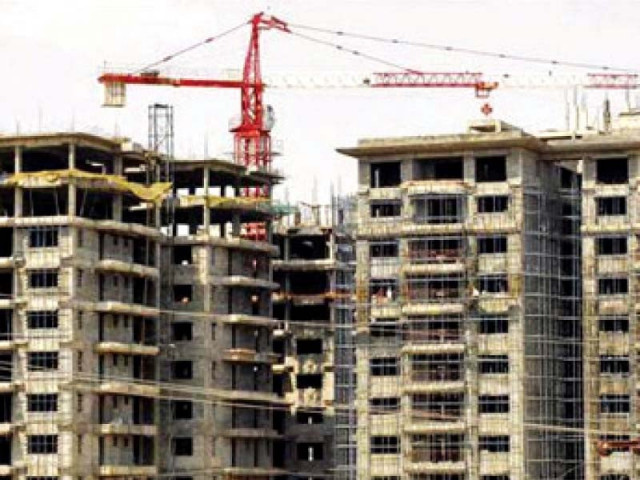New curbs on real estate dealings
Govt bars development authorities from doing business with unregistered agents

The government has barred all public and private development authorities from doing business with real estate agents who are not registered under the Anti-Money Laundering (AML) Act and it is also set to increase property valuation rates in 40 major cities.
The condition to suspend business with the unregistered real estate agents will come into effect on January 1, 2022, according to a notification issued by the Federal Board of Revenue (FBR) on Monday.
“Any violation of this condition shall attract penal provisions under the AML Act 2010 and AML/CFT Sanctions Rules 2020,” warned the FBR.
The FBR has issued the new order for the development of housing authorities to discipline real estate agents, who ought to get registered with the tax machinery under the AML Act 2010.
The AML law empowers the FBR to issue licence or register real estate agents under the Designated Non-Financial Businesses and Professions (DNFBPs) to prevent the offences of money laundering, predicate offences or financing of terrorism.
“No public or private development authority shall conduct business activity with any real estate agent for the transfer or registration of immovable property unless the real estate agent is registered with the FBR as the Designated Non-Financial Business and Profession (DNFBP),” said the order released on Monday.
The condition will be applicable to all real estate agents registered or dealing with development authorities, housing authorities, cooperative housing societies and other housing schemes dealing in the development of land for residential and commercial purposes, construction and sale/purchase or transfer of ownership rights.
Read Construction cost hits new high
The real estate sector has been declared a high risk area for money laundering by the Financial Action Task Force (FATF) and the FBR has been declared as a regulatory authority to discipline the sector.
Most of the black money is parked in the real estate sector and for a long time the authorities have been trying to tap this area. However, due to various lacunas, the tax collection has always remained negligible compared with the transactions and returns on them.
New valuation rates
The FBR has also finalised revised property valuations for the purpose of collecting federal taxes, mainly the withholding tax on transactions and capital gains tax on profits, sources told The Express Tribune.
They said that on average the rates were revised upwards by 10-15% in 21 existing cities where properties had already been taxed on the basis of FBR’s valuations since 2017. However, in many cases, the rates were increased from 5% to 100%, said the sources.
The FBR has also decided to increase the number of cities from 21 to 40 in the latest phase of revision in valuations. The rates are expected to be notified soon.
The Ministry of Law and Justice has already vetted the notification of 40 cities, which the FBR is targeting to apply with effect from December 1.
Read more MIDCITY revolutionises urban living in Pakistan
Currently, there are three valuation rates - FBR rates, district collector (DC) rates and actual rates. The difference in these rates is creating black money in the market, which can only be plugged by bringing the rates closer to market values.
Out of the 19 new cities that are being added to the FBR’s list, 13 are from Punjab. They are Attock, Chakwal, Bahawalnagar, Narowal, DG Khan, Hafizabad, Kasur, Khushab, Mandi Bahauddin, Toba Tek Singh, Okara, Rahim Yar Khan and Sheikhupura.
Lahore, Rawalpindi, Faisalabad, Gujranwala, Jhelum, Sargodha, Gujrat, Sialkot, Multan, Sahiwal, Jhang and Bahawalpur are already on the FBR’s radar but their rates are being further revised upwards.
The FBR has also decided to increase valuations for Karachi, Hyderabad, and Sukkur besides bringing three new cities of Sindh to its radar. These are Ghotki, Larkana and Mirpurkhas.
From Khyber-Pakhtunkhwa, the property rates of Peshawar, Abbottabad and Mardan have been revised and two more cities Mansehra and Dera Ismail Khan have been added to the list where the FBR valuations will be applicable.
Similarly, in Balochistan, the property valuation rates for Quetta and Gwadar have been increased while Lasbela is being added to the list.
The property valuation rates for Islamabad have also been increased. But there is a major anomaly in the case of Islamabad as the district administration has massively reduced the DC rates.
Prices in the Islamabad metropolitan city have shot up in recent years but these have not been reflected in the April 29’s notification of the local administration.
Also read FBR challenges abolishing FED on telecom sector
In January last year, the Islamabad Capital Administration had notified property valuation rates for the areas that had not been covered by the FBR valuations.
However, the local administration has revised downwards these rates twice and the latest revision came on April 29 this year, resulting in erosion of nearly Rs6.2 trillion in the value of these properties for taxation purposes, showed the comparison of the two notifications.
Published in The Express Tribune, November 30th, 2021.
Like Business on Facebook, follow @TribuneBiz on Twitter to stay informed and join in the conversation.


















COMMENTS
Comments are moderated and generally will be posted if they are on-topic and not abusive.
For more information, please see our Comments FAQ